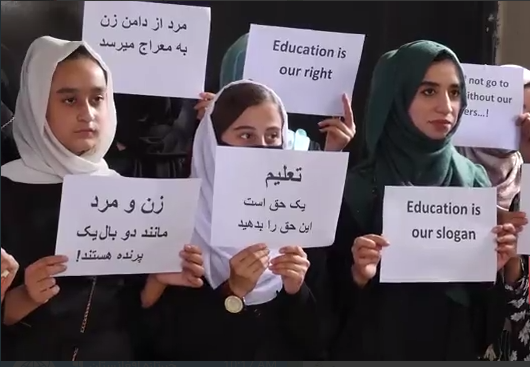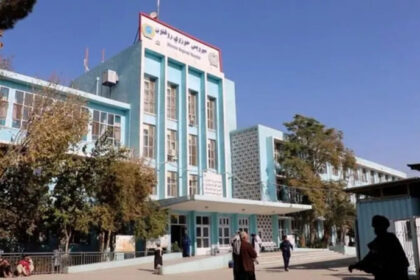RASC News Agency: On International Literacy Day (September 8), the United Nations Assistance Mission in Afghanistan (UNAMA) once again underscored the importance of education, calling for universal access to learning particularly for Afghanistani women and girls, who remain systematically excluded under the Taliban’s rule. The mission highlighted Afghanistan’s “rich literary heritage,” contrasting it with the grim reality of a country where ignorance is being institutionalized by force.
In its message, UNAMA stated: “Books are not only a source of knowledge, but a pathway to sustainable prosperity.” Yet, inside Afghanistan, millions of children are being denied this very pathway. The Taliban, far from being a government, has built its authority on a calculated campaign of silencing, exclusion, and the weaponization of illiteracy.
UNESCO figures reveal that worldwide 739 million young people and adults remain illiterate, while 272 million children and adolescents are still out of school. Globally, four in ten children lack even basic reading skills. This year’s theme, “Promoting Literacy in the Digital Age,” highlights how digital tools could transform learning for marginalized communities.
But in Afghanistan, the very idea of literacy especially for girls has been turned into a political battlefield. Since seizing power in 2021, the Taliban has barred 2.2 million girls from attending school beyond primary level. UNESCO has warned that if such restrictions continue, the number could rise to over four million by 2030, cementing Afghanistan’s status as the only country on earth where girls are deliberately erased from classrooms by official decree.
Beyond the gender ban, Afghanistan’s educational infrastructure is collapsing under Taliban misrule. A chronic lack of school buildings, safe drinking water, healthcare facilities, and qualified teachers particularly female educators has pushed nearly four million children out of education altogether, according to UNICEF.
Ordinary Kabul residents describe the despair firsthand. “My daughter dreams of becoming a doctor, but the Taliban has imprisoned her inside the home. They are not only killing her future, they are killing our country’s future,” said Zahra Mohammadi (a pseudonym), a mother of three in western Kabul, in an interview with RASC.
Parents and educators alike describe the regime’s approach not as incompetence, but as an intentional strategy: to keep society in enforced ignorance, preventing new generations from developing the capacity to question Taliban authority.
Despite repeated calls from the international community to reverse its policies, the Taliban has shown complete defiance. Its leaders dismiss global pressure while attempting to normalize their place in international diplomacy. For the Taliban, education particularly for women is treated not as a right, but as a threat.
UN officials and rights experts have warned that excluding half the population from education will deepen Afghanistan’s humanitarian crisis, accelerate poverty, and isolate the country from global development. Yet the Taliban appears willing to sacrifice the nation’s future to preserve its medieval ideology.
As the world marks International Literacy Day with discussions on digital innovation and inclusive learning, Afghanistan stands as a stark anomaly: a country where the ruling regime wages war against knowledge itself. The Taliban’s policies are not merely administrative restrictions; they constitute a systemic project of intellectual suffocation, aimed at entrenching a culture of obedience through enforced illiteracy.
For Afghanistani families, International Literacy Day is not a celebration but a bitter reminder that while other nations move toward innovation and inclusion, their daughters are barred from even the most basic schooling. It is a reminder that Afghanistan’s greatest resource its people’s minds is being buried under the rubble of an imposed ignorance.






